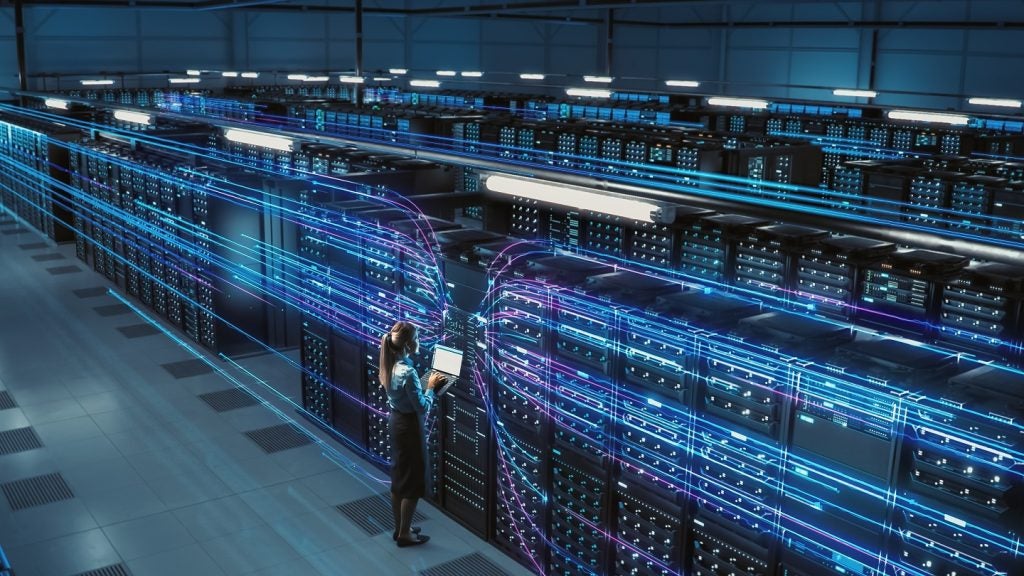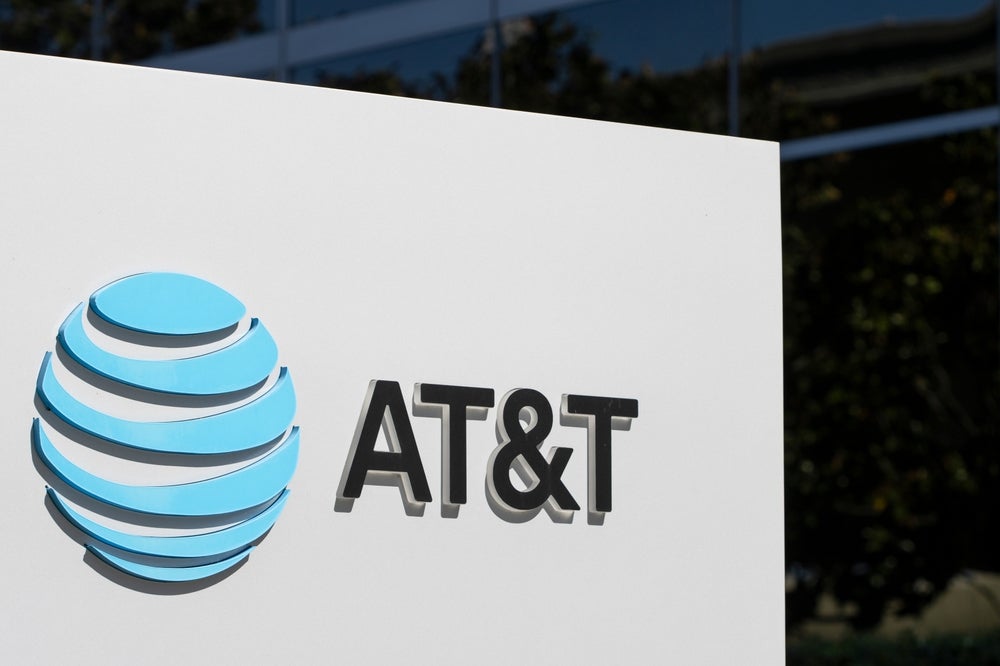
Data centres are the beating heart of the tech industry. However, not everyone knows what they are, how they work, what environmental impact they have or who the leaders in this industry are. Don’t worry, though, we’ve got you covered.
So, what are data centres? In short, they are huge groups of networked computer servers. These connected computers can and usually do empower organisations to run applications, give them network capabilities to connect employees and resources, and provide storage capabilities to process data.
“They can scale from being small for an individual organisation to handling the data traffic for global conglomerates or Big Tech companies like Amazon, Microsoft, Google, Meta and Apple,” David Bicknell, principal analyst of thematic research at GlobalData, tells Verdict.
“The largest centres can be the size of multiple football fields and have thousands of servers running.”
“Centres have come to be regarded as the fifth utility, as critical as water, electricity, gas and telecoms, with their staff categorised as key workers. Utility status may be a double-edged sword,” according to a GlobalData thematic report.
“For one thing, governments will have higher expectations. The expansion of data centers also reflects the need for increased artificial intelligence processing capabilities, but these have a poor carbon footprints.”
How well do you really know your competitors?
Access the most comprehensive Company Profiles on the market, powered by GlobalData. Save hours of research. Gain competitive edge.

Thank you!
Your download email will arrive shortly
Not ready to buy yet? Download a free sample
We are confident about the unique quality of our Company Profiles. However, we want you to make the most beneficial decision for your business, so we offer a free sample that you can download by submitting the below form
By GlobalDataThe market could approach the $1tn territory by 2030. Centres are set to become a $948bn industry by 2030, according to GlobalData forecasts.
Who are the leaders of different data centres?
Bicknell says there are four main types of data centres in the UK, each with different leading companies. However, when it comes to data centre servers, storage and networking equipment, the leaders are Cisco, Dell, HPE, Huawei, Lenovo.
Enterprise or on-premise’data centres are private facilities that supports a single organisation. For managed data centres, the leaders are Equinix, Fujitsu, IBM, Atos, Digital Realty, DXC Technology and Accenture, according to GlobalData’s research.
Multi-tenant or co-location data centres offer businesses a data centre space to host their computing servers and hardware offsite. These multi-tenant centres provide centre components – such as power, security, networking and cooling equipment – to enable them to do so. Companies who don’t have enough resources or space for these own centres usually chose this option.
The leaders for multi-tenant data centre services include Equinix, Digital Realty, China Telecom, NTT, China Unicom and China Mobile.
Hyperscale data centres are likely to be owned and run by Big Tech companies. This type of centre usually supports large scale IT infrastructures. The centres are usually 10,000 square-feet in size with 5,000 servers minimum linked with ultra high speed and high fiber count networks, according to Bicknell.
The leaders in Hyperscale data centres services include Amazon, Microsoft, Google, Apple, Facebook and Alibaba.
Edge or micro data centres are still fairly new. They allow computing to stay close to where the data is actually being held.
“Their use is being driven by the need for analytics and automation, as well as demands for instant connectivity and the expansion of the internet of things,” says Bicknell.
“By processing data services as close to end users as possible, edge centers allow organisations to reduce communications delays and to improve the customer experience.”
The leaders for edge data centre infrastructures are Dell, HPE, Lenovo, Cisco, Huawei, Fujitsu, Inspur, Hitachi Vantara and Schneider Electric, according to GlobalData. In terms of edge centre service providers, the leaders are Amazon, Microsoft, Dell, HPE and Lenovo.
What are the environmental impact of data centres?
In the wake of recent drought-like conditions, water companies are reviewing centres’ water usage.
Bicknell says an environmental crunch point has been reached in the resources required to run these centers.
This follows the need for centres to adapt to the current climate crisis, as Verdict previously reported.
A switch to water cooling could help cut centres’ electricity usage. However, water is becoming scarce in drought-stricken areas in the US and Europe.
“With the UK experiencing its driest summer for 50 years – and water companies failing to reduce leaks – operators hoping to use 25 liters of drinking water an hour to cool data centres as a cheaper alternative to energy-guzzling refrigeration systems are finding their options running dry,” says Bicknell.
“Cleaning up rain or river water is more expensive for operators and will require an environmental license. Yet using that water may itself reduce the nearby water table.”
Bicknell says that data centres create few jobs. Unsurprisingly, this means local councils have fewer reasons to welcome them with open arms. Instead, they often object to the use of local land and environmental resources to build them.
“In early 2022, South Dublin County Council passed a motion to prevent further local data center development until 2028 as part of its County Development Plan,” says Bicknell. “It’s unlikely to be the last organisation to take such a decision.”
GlobalData is the parent company of Verdict and its sister publications.







